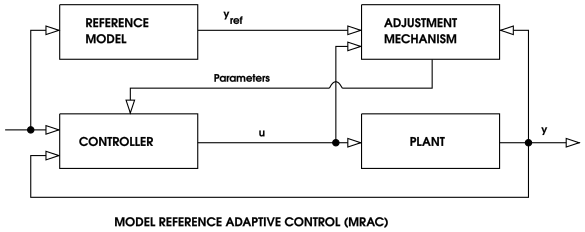just thinkin....
Tuesday, December 18, 2012
death to the micro confounders school of macro
they justified the necessary class based
70's fuck up
of K school fiscal activism
but now they go down for the count

social facts are stubborn and social motions rebellious
oh those poor poor fresh water boys
in the end Clio
laid
a nice fat sap
across the back of their necks
70's fuck up
of K school fiscal activism
but now they go down for the count
social facts are stubborn and social motions rebellious
oh those poor poor fresh water boys
in the end Clio
laid
a nice fat sap
across the back of their necks
Monday, December 17, 2012
pk skates near the abyss
does here pk hear the call
from the emptiness below his chin ?
i do :
"your macro work was all under pinned with bull shit "
pk:
"Saltwater economists in the New Keynesian school — which sort of included me, for instance in my liquidity-trap writing — were doing intertemporal-maximization models that in effect conceded a lot of ground to freshwater styles of analysis"
ain't that the truth !!!!
"... but with distortions — monopolistic competition and sticky prices —"
sooooo ?
umh
"...that made room for demand failures as a cause of recession."
ie made room for reality and its dangers...sort of or almost or ...
okay made room for a reality like danger
without any reality of course
but reality immitated well enough to be a caution
even if easily non heedable in its understatements
or
even if never the less reality WAS never so less reality
but hark
the withering blast:
".. many of the economists doing this stuff
imagined that they were part of a real discourse with the freshwater side"
example
" witness Olivier Blanchard’s The State of Macro, written just before the crisis. Olivier’s abstract declares that
and concludes that “the state of macro is good”.
Famous last words."
largely because facts do not go away ?
pk :
"In fact, the freshwater side wasn’t listening at all..
80-year-old fallacies cropped up
as soon as an actual policy response to crisis
was on the table"
and pk again:
" as for changing views in response to facts, well, we all know how that has gone."
krug's narrative suggests fresh water willfull blindness
but what of the salty siders ?

so what is PK's sum up on them ?
on that ...the last is silence
and yet don't it look like his own ties
to the NEW KEYNESIAN
saltness squalidity
are not now
held on to with aplumb ?
not NKism
" sort of included me "
in his credit slump spending contraction
modeled by his NK contrived
eulered up jiggernaut
in hhis popular reports its all
just warmed over hicks
i think he just likes the fun side
of his NK lego world
conjured with the help of his wizards assistant ice cap slim
with wonder land inversions ?
one can't cast ones efforts out easily
from the emptiness below his chin ?
i do :
"your macro work was all under pinned with bull shit "
pk:
"Saltwater economists in the New Keynesian school — which sort of included me, for instance in my liquidity-trap writing — were doing intertemporal-maximization models that in effect conceded a lot of ground to freshwater styles of analysis"
ain't that the truth !!!!
"... but with distortions — monopolistic competition and sticky prices —"
sooooo ?
umh
"...that made room for demand failures as a cause of recession."
ie made room for reality and its dangers...sort of or almost or ...
okay made room for a reality like danger
without any reality of course
but reality immitated well enough to be a caution
even if easily non heedable in its understatements
or
even if never the less reality WAS never so less reality
but hark
the withering blast:
".. many of the economists doing this stuff
imagined that they were part of a real discourse with the freshwater side"
example
" witness Olivier Blanchard’s The State of Macro, written just before the crisis. Olivier’s abstract declares that
largely because facts do not go away, a largely shared vision......both of fluctuations and of methodology has emerged
and concludes that “the state of macro is good”.
Famous last words."
largely because facts do not go away ?
pk :
"In fact, the freshwater side wasn’t listening at all..
80-year-old fallacies cropped up
as soon as an actual policy response to crisis
was on the table"
and pk again:
" as for changing views in response to facts, well, we all know how that has gone."
krug's narrative suggests fresh water willfull blindness
but what of the salty siders ?

so what is PK's sum up on them ?
on that ...the last is silence
and yet don't it look like his own ties
to the NEW KEYNESIAN
saltness squalidity
are not now
held on to with aplumb ?
not NKism
" sort of included me "
in his credit slump spending contraction
modeled by his NK contrived
eulered up jiggernaut
in hhis popular reports its all
just warmed over hicks
i think he just likes the fun side
of his NK lego world
conjured with the help of his wizards assistant ice cap slim

with wonder land inversions ?
one can't cast ones efforts out easily
Friday, December 14, 2012
Sunday, December 9, 2012
Thursday, December 6, 2012
if there existed a corporate vatican that outfit couldn't get this better then the tax al qaeda gets it here:
buried headline:
" the revenue maximizing capital gains tax rate, which appears to be a bit under 10 percent "
"Many types of tax changes move revenues in the normal direction predicted by static analysis.
Tax rate increases raise revenues; tax rate reductions reduce revenues.
They do not alter economic growth and incomes enough to completely offset their projected revenue gains or losses.
For example,
across-the-board income tax rate reductions
recover only about a third of their static revenue losses with additional growth
(while adding more than $2 to people’s pre-tax incomes for each dollar of revenue loss to the government).
Likewise,
excise taxes, sales taxes, and payroll taxes
are generally not over the revenue-maximizing hump of the Laffer curve.
Nonetheless,
some tax reductions (or increases) are unusually effective in raising (lowering) incomes and recovering (losing) revenues.
Capital formation is highly sensitive to after-tax earnings.
Some tax changes that aim directly at capital formation
can trigger enough of a change in
the stock of buildings,
the amount of equipment,
and the hiring of workers
to utilize them to come close to, or even more than offset, the initial revenue change.
These include
reductions in
the estate tax
and steps that offset some of the double taxation of corporate income,
including lower corporate tax rates and lower taxes on capital gains
(which hit retained after-tax corporate earnings)
and dividends (which are paid out of after-tax corporate earnings).
Raising these taxes can often be entirely counter-productive."
" the revenue maximizing capital gains tax rate, which appears to be a bit under 10 percent "
"Many types of tax changes move revenues in the normal direction predicted by static analysis.
Tax rate increases raise revenues; tax rate reductions reduce revenues.
They do not alter economic growth and incomes enough to completely offset their projected revenue gains or losses.
For example,
across-the-board income tax rate reductions
recover only about a third of their static revenue losses with additional growth
(while adding more than $2 to people’s pre-tax incomes for each dollar of revenue loss to the government).
Likewise,
excise taxes, sales taxes, and payroll taxes
are generally not over the revenue-maximizing hump of the Laffer curve.
Nonetheless,
some tax reductions (or increases) are unusually effective in raising (lowering) incomes and recovering (losing) revenues.
Capital formation is highly sensitive to after-tax earnings.
Some tax changes that aim directly at capital formation
can trigger enough of a change in
the stock of buildings,
the amount of equipment,
and the hiring of workers
to utilize them to come close to, or even more than offset, the initial revenue change.
These include
reductions in
the estate tax
and steps that offset some of the double taxation of corporate income,
including lower corporate tax rates and lower taxes on capital gains
(which hit retained after-tax corporate earnings)
and dividends (which are paid out of after-tax corporate earnings).
Raising these taxes can often be entirely counter-productive."
great label : " service price of capital "
capital is a well paid servant indeed
of the producing citizenry
of the producing citizenry
Subscribe to:
Posts (Atom)


